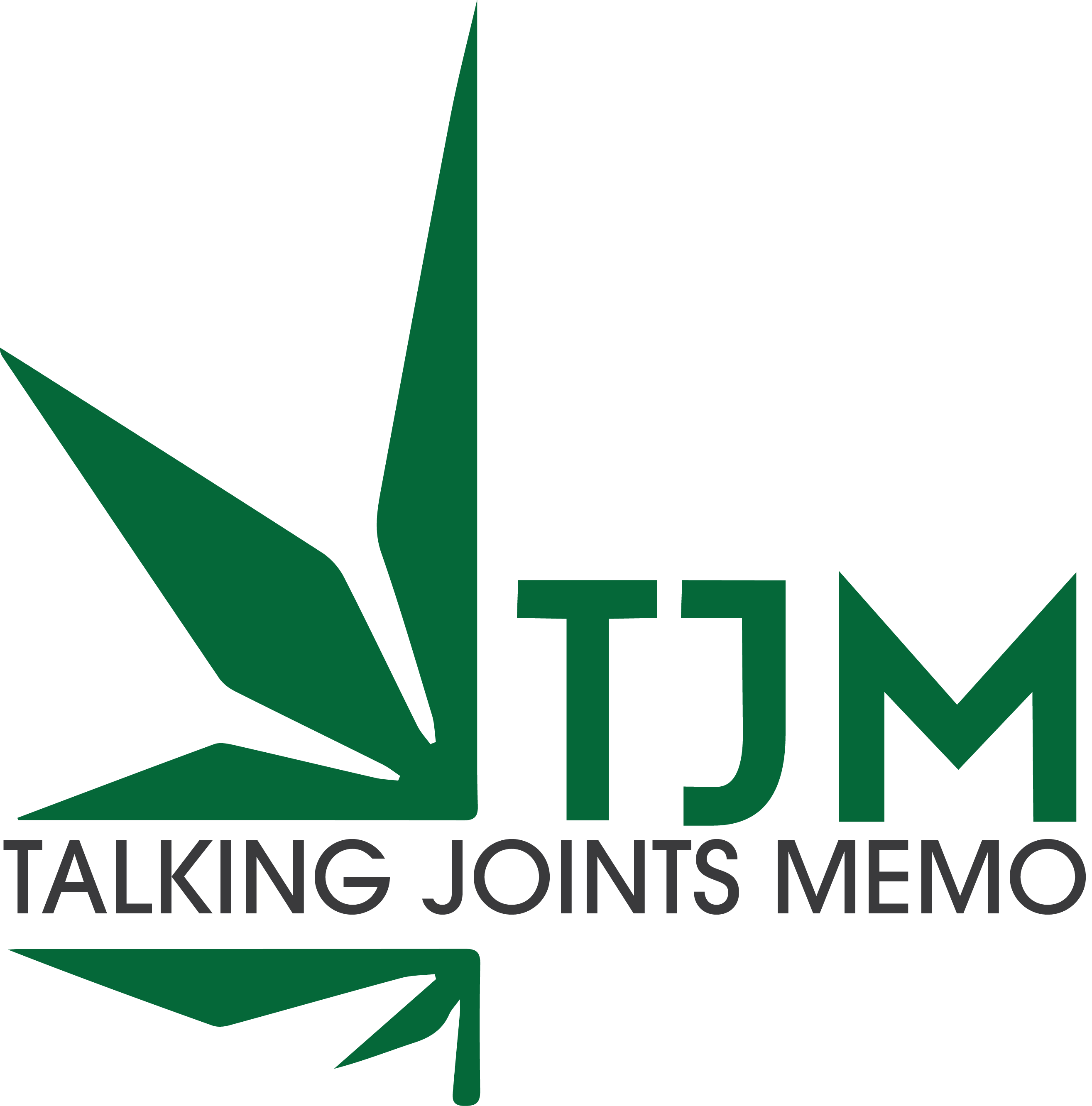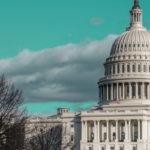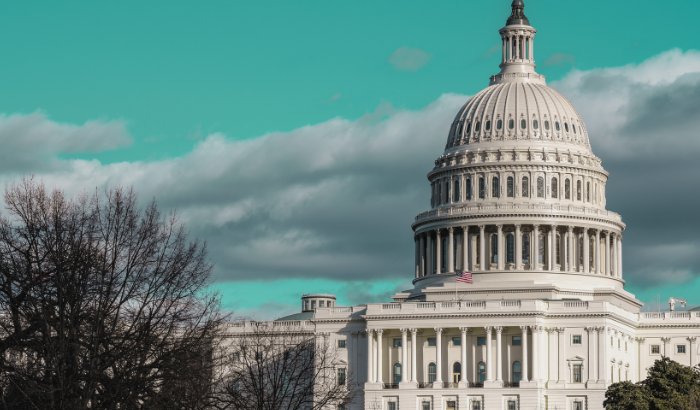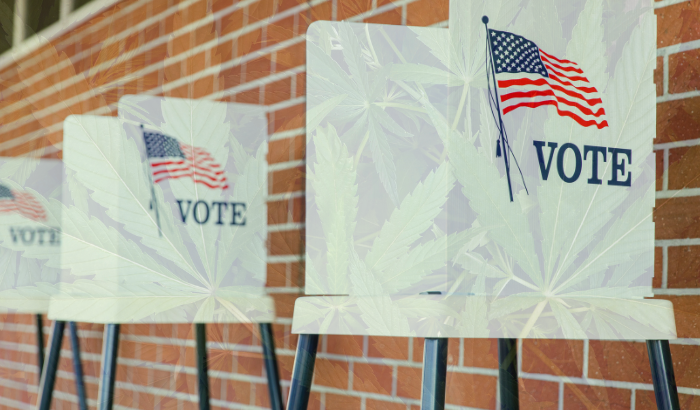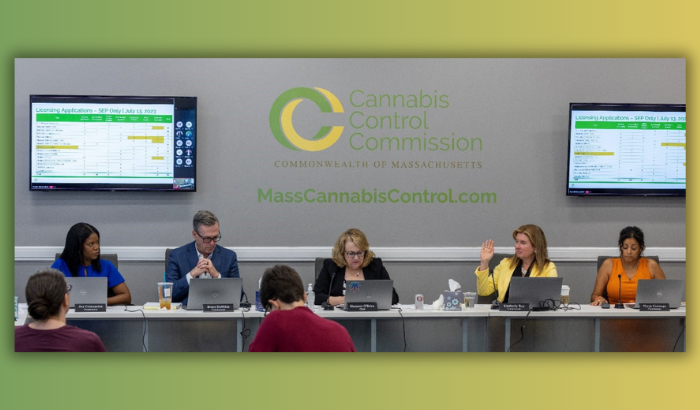
“I hope that the steps we are taking continue opening doors for those who were disproportionately harmed by the War on Drugs and deserve a place in this market.”
We like to think that we’ve been harsh but fair in our coverage of the Massachusetts Cannabis Control Commission, including our reporting on their meeting heard ’round the industry last week in which Chair Shannon O’Brien dropped a bombshell on her colleagues and those viewing about the agency’s executive director’s imminent departure.
With that said, the CCC’s state of relative disarray has been somewhat overblown by the local and national media, with dozens of articles since last week about the commission being “in crisis” overshadowing the actual work they have done. Those reports are warranted and the agency certainly needs to fix some things quickly, like its lack of protocols and standards around product testing and data that the state collects (fortunately, there is a CCC Cannabis Advisory Board Research Subcommittee working on that issue). But the overall picture is far more complex than any hit piece or headline can communicate, as the larger truth is that commissioners and their support staff have made many movements toward improvements, all with a November deadline over their heads.
We encourage you to read our nuanced reporting on developments in areas such as Host Community Agreements (HCAs) and social consumption, but we also wanted to share the big picture from the CCC. You can read their summary below:
The Cannabis Control Commission (Commission) voted 4-0 on Friday, July 28 to approve historic changes to Massachusetts’ adult and medical use of marijuana regulations that aim to level the playing field for entrants into the Commonwealth’s legal industry, increase access for small businesses and those from communities that have been disproportionately harmed by marijuana prohibition, and ensure compliance with the state law.
Many of the draft policies approved were mandated as the result of Chapter 180 of the Acts of 2022, An Act Relative to Equity in the Cannabis Industry (Chapter 180), and followed months of work by Commissioners and staff on regulatory working groups, including a Host Community Agreement (HCA) Regulatory Working Group led by Commissioners Ava Callender Concepcion and Kimberly Roy, and a Municipal Equity Regulatory Working Group led by Chair Shannon O’Brien and Commissioner Concepcion.
Revisions include new parameters for the local contracts that host cities and towns must enter with Marijuana Establishments and Medical Marijuana Treatment Centers to site such facilities, otherwise known as HCAs, and local policies that communities must implement to comply with the state’s mandate to ensure equity in Massachusetts’ regulated marketplace. Other proposals seek to eliminate disqualifications that prevent prospective Registered Agents from employment in the legal industry and expand to all cities and towns in the Commonwealth the ability to opt-in to hosting Social Consumption Establishments.
The changes that Commissioners approved on Friday represent draft regulations which will be filed with the Secretary of State’s Regulations Division and published on the Commission’s website. To enable constituents and stakeholders to weigh in on all proposals, the Commission will accept public comments as written testimony and is planning a public hearing September 8. After that, the Commission will reconvene to consider feedback and vote on final regulations. HCA, municipal equity, and suitability policies that aim to implement Chapter 180 are required by law to be promulgated by the Secretary of State no later than November 9, 2023.
“As the sole Commissioner who had a piece of all three regulatory topics we voted on, I couldn’t be more excited about the new opportunities presented in these drafts that aim to make Massachusetts’s regulated cannabis industry more accessible and inclusive,” Commissioner Ava Callender Concepcion said in a statement. “Whether it is ensuring a more transparent and fair process for applicants at the local level or removing barriers to entry for individuals interested in working in this still-newly regulated industry—I hope that the steps we are taking continue opening doors for those who were disproportionately harmed by the War on Drugs and deserve a place in this market.”
“We have spent months working closely with our staff to draft regulations that will allow the Commission to fully implement the reforms mandated by Chapter 180,” Chair Shannon O’Brien added. “I am thrilled to now be entering this next phase of the regulatory review process with my fellow Commissioners and hear from stakeholders and industry participants. Having worked most closely on the municipal equity regulations, I am confident that we are working towards making the aspirations of our first-in-the-nation mandate to include disproportionately harmed industry participants a reality.”
“The Legislature was clear in the mandates outlined in Chapter 180: HCAs are an important component of state and local cannabis licensing process,” Commissioner Kimberly Roy said. “As one of the co-leads of the HCA policy working group, I am grateful to everyone at the Commission who contributed their time and expertise to developing these policy recommendations. The Commission’s authority in this space may be new, but we are optimistic these regulations will provide clarity during the licensing process for both municipalities and applicants as they continue to work cooperatively in the years to come.”
Proposed policy changes that are embedded in the approved drafts include (via CCC):
HCAs
- New Commission authority to:
- Review, approve, and certify HCAs, and develop a model contract;
- Deem an HCA provision invalid or unenforceable, or voidable; and
- Issue sanctions against a host community that is noncompliant with HCA regulatory requirements, abstain from considering new license applications in that host community, or publish a list of communities that are out of compliance.
- Starting no later than May 1, 2024, a requirement that License Applicants and/or Licensees and host municipalities reach and adhere to an HCA that complies with state law, or agree to a compliant waiver;
- To be considered compliant, any conditions set in an HCA must be reasonable. Some conditions that are presumed reasonable, include those that are:
- Required under local rules, regulations, ordinances, or bylaws;
- Deemed necessary to promote public safety by the host community’s chief law enforcement authority;
- Deemed necessary to promote public health by the host community’s chief public health authority;
- A local requirement customarily imposed by the host community on other, non-cannabis businesses operating in the municipality;
- Not in conflict with other laws; or
- Otherwise deemed reasonable by the Commission.
- To be considered compliant, any conditions set in an HCA must be reasonable. Some conditions that are presumed reasonable, include those that are:
- New provisions specifying the stipulations between the HCA and the License Applicant and/or Licensee, a set timeline for host communities to transmit an impact fee invoice to the Licensee that is subject to the HCA, and statements of generally occurring fees charged by the host community;
- Community Impact Fee invoices provided by cities and towns must include specific claims for how impact fees were spent and line items for cost and purpose of each good or service.
- Permission for the host community and License Applicant and/or Licensee to include HCA terms that they agree to bring HCA-related disputes before a private mediator retained by the parties, without compelling parties to participate;
- Prohibitions on certain HCA provisions, terms, conditions, or clauses, including:
- A promise to make future monetary payment, in-kind contribution, or charitable contributions, whether explicit or implicit;
- Requiring a License Applicant or Licensee to make upfront payments as a condition for operating in the host community;
- Obligating a Licensee to set aside money in an escrow, bond, or other similar account for a host community’s use or purpose;
- Imposing legal, overtime, or administrative costs or any costs other than a Community Impact Fee on a Licensee with the exception of tax obligations and routine, generally occurring fees;
- Inducements to negotiate or execute an HCA;
- Requiring that the Community Impact Fee be a certain percentage of the licensee’s total or gross sales as a term or condition of an HCA, or demanding the fee exceed three percent of the licensee’s gross sales;
- Discouraging any party from bringing a civil cause of action or other legal challenge relative to an HCA or to an individual term or provision of an HCA; and
- Waiving away a Licensee’s ability to dispute whether the impact fees alleged by a host community are reasonably related to the costs imposed on their operations;
- A set timeline (a maximum of 90 days) and process for the Commission to complete its review of an HCA upon receiving it from a License Applicant and/or Licensee—which may be extended 90 days with each notice of deficiency or request for information from the agency—as well as notifying the parties of the agency’s determination for the proposed HCA;
- The ability of Licensees to access equitable relief if a municipality decides to no longer participate as their host community;
- The Commission may give the impacted Licensee additional time to receive the approval of the city/town for a compliant HCA or make a change of location, waive fees, or determine other equitable relief; and
- Allowing interested parties to file complaints about compliance with HCA requirements with the Commission or bring a private breach of contract action in a court of competent jurisdiction.
Municipal Equity
- Authorizing Licensees to satisfy, in part, existing requirements to submit a Plan to Positively Impact Disproportionately Harmed People to the Commission by donating to the Cannabis Social Equity Trust Fund that is administered by the Executive Office of Economic Development in collaboration with the Cannabis Social Equity Advisory Board;
- Requiring host communities to donate, at minimum, 3% of each Community Impact Fee it receives from a Licensee to the Cannabis Social Equity Trust Fund;
- Expansion of the Commission’s pre-certification process, which is currently available for delivery or social consumption licenses, to all license types, thereby enabling Certified Economic Empowerment Priority Applicants and Social Equity Program Participants to demonstrate to a prospective host city or town their propensity to open any licensed cannabis business;
- A new pre-verification process available to prospective license applicants who seek to qualify as a Social Equity Business under Chapter 180 to become eligible for consideration as part of host communities’ equity efforts at the local licensing level;
- Eliminating existing administrative burdens on License Applicants and Licensees who qualify as Social Equity Businesses and businesses held by majority ownership of Social Equity Program Participants and/or Economic Empowerment Priority Applicants, and introducing a shortened timeline for the agency’s approval process of license applications, as well as a shortened window for entities to move towards Provisional Licensure;
- Requiring transparency into municipal licensing frameworks and available HCAs, a requirement that cities and towns publish information about their local licensing process in a conspicuous place and online, and create a standard evaluation form to ensure businesses have clarity about why licenses are issued to certain entities over others;
- Setting specific standards for host communities during HCA negotiations with Social Equity Businesses and License Applicants, including:
- The ability to waive or reduce fees such as CIFs, zoning and occupancy fees;
- Set numbers of conferences with equity parties and the requirement of providing a certified interpreter to assist non-English speakers;
- The ability of an equity party to propose an amendment to, or seek cancellation of, an HCA within 30 days of execution;
- Prohibition of the use of undue influence, duress, coercion, intimidation, threats, or any strong-arm tactics to negotiate an HCA with an equity party, or compelling any equity party to sign the contract.
- Requiring that host communities with saturated licensing caps will be required to reserve for equity businesses at least one, and as many as 50% of any expanded license opportunities; and
- After May 1, 2025, the Commission will be authorized to fine cities and towns that are found to be out of compliance with the Commission’s municipal equity regulations, deposit those fines into the Cannabis Social Equity Trust Fund, and publish a list of noncompliant municipalities.
Suitability
- In accordance with Chapter 180, eliminating previously existing disqualifiers that prevented individuals with certain criminal backgrounds from employment in the legal industry as Registered Agents for Marijuana Establishments and Medical Marijuana Treatment Centers, with exceptions for Independent Testing Laboratory Agents and license owners.
Social Consumption Pilot Program
- Eliminating a previously existing Pilot Program which would have limited Social Consumption host communities to no more than 12 municipalities, thereby allowing any city and town in the Commonwealth to opt-in to hosting such establishments when the license becomes available.
- Note: The Social Consumption Regulatory Working Group, led by Commissioners Bruce Stebbins and Nurys Camargo, while not beholden to the November 9, 2023 statutory deadline to implement new regulations for Social Consumption Establishments, continues to review the Commission’s existing license type and regulations following three public Listening Sessions, a survey of prospective licensees, and public comment via email this summer. Additional feedback may be submitted to Commission@CCCMass.com with the subject line “Social Consumption Regulatory Working Group.”



